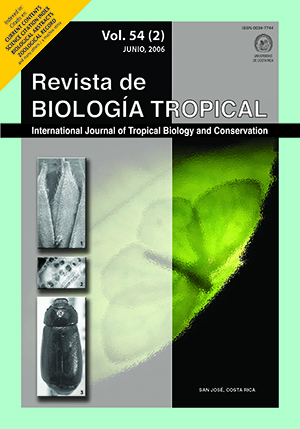Abstract
We ana-lyzed phenotypic, structural and ultrastructural alterations induced by Cd+2 in hepatocytes extracted from Swiss Albino mice. Cadmium was given orally in watery solution of CdCl2 during 100 days at concentrations of 50 ppm, 100 ppm and 150 ppm. In controls, distilled water alone was used. The samples were processed with the paraffin inclusion and hematoxilin-eosin coloration techniques for light microscopy. For transmission electron microscopy we used the conventional technique. We found phenotypic (size and weight differences) and physi-ologic changes (muscular weakness, unrest); at the structural level we noticed loss of trabecular disposition and of lobulillar architecture, lymphocyte agglomeration, vacuolization, dilatation of sinusoid and central vein, among others. The ultrastructural study evidenced alterations coincident with those seen with light microscopy, which were accentuated with the increase of metal concentration: nucleolus with a high number of fibrillar centers (50 ppm); voluminous lipidic drops in the cytoplasm, loose endoplasmic rough reticulum, citoplasmatic vacuolization, altered lisosomes and peroxisomes (100 ppm); contracted nuclei with condensed cromatine, dila-tation of intracellular space and mitochondria, and loss of fibrillar areas (150 ppm). Cadmium produces a toxic effect in the hepatic cells; the effect is more severe at higher concentration, leading to cellular necrosis.
##plugins.facebook.comentarios##

This work is licensed under a Creative Commons Attribution 4.0 International License.
Copyright (c) 2006 Revista de Biología Tropical






